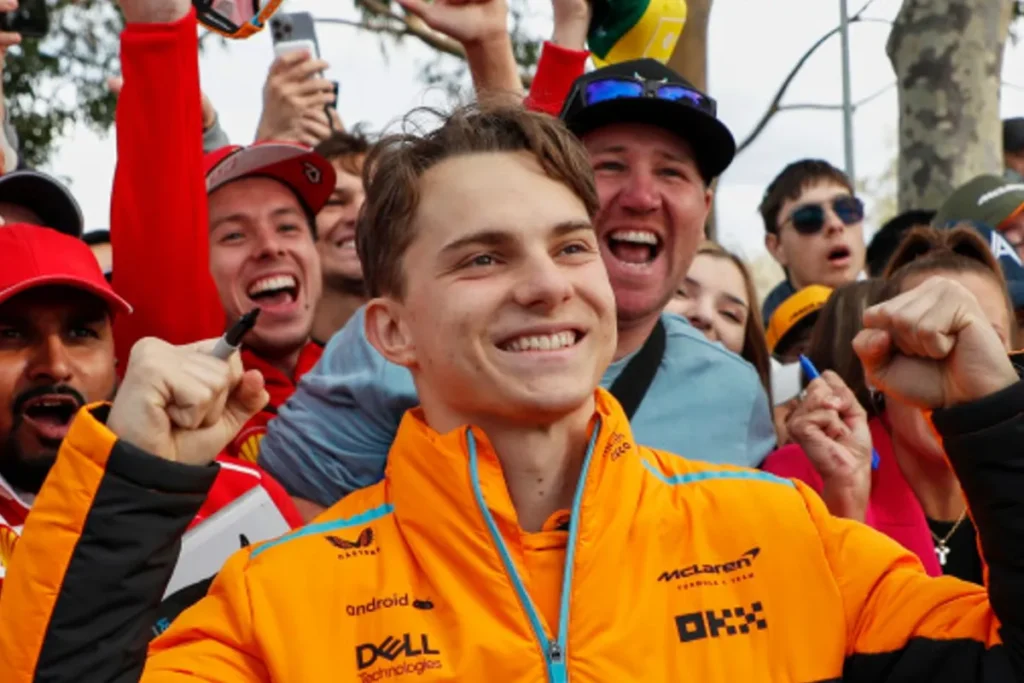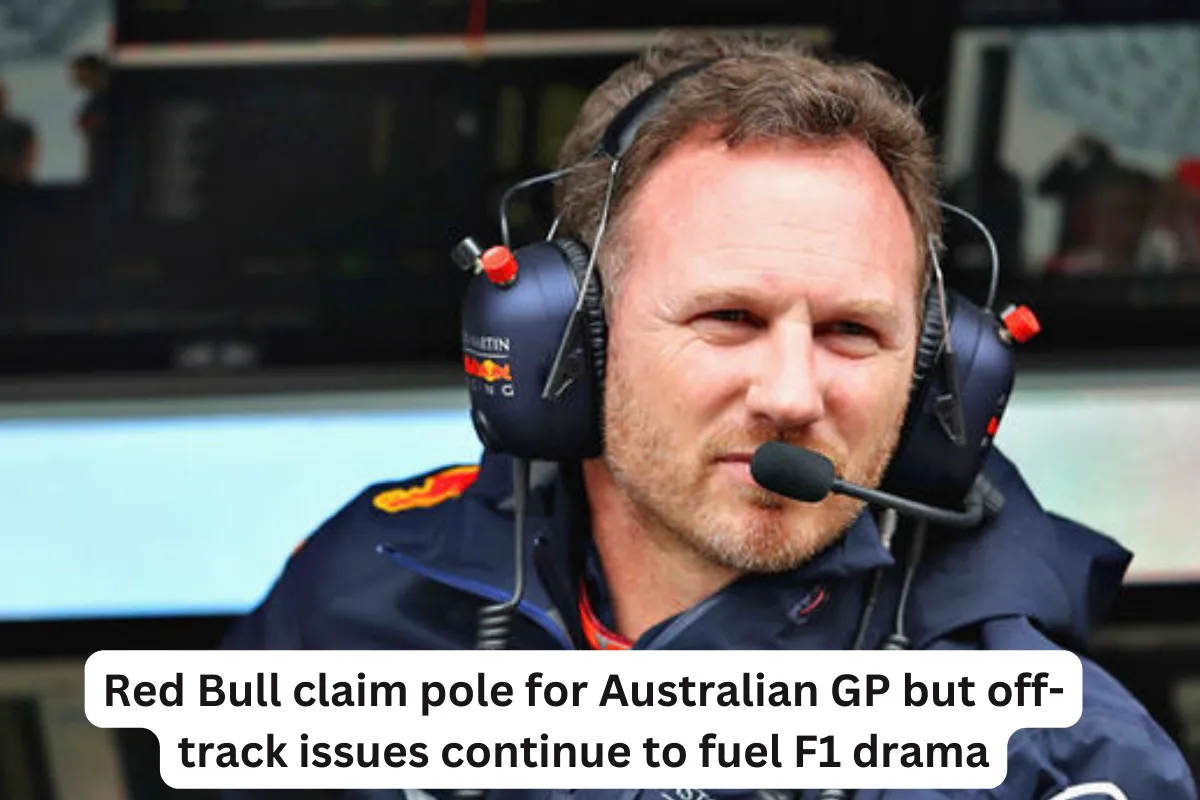In the heart of Melbourne, the Formula 1 circus roars back to life as the Australian Grand Prix weekend kicks off in high gear.
Amidst the buzz of anticipation, Red Bull Racing have seized pole position, setting the stage for what promises to be a thrilling race.
However, as the engines rev and the excitement builds on the track, off-track controversies and dramas continue to simmer, casting a shadow over the pinnacle of motorsport.
The qualifying session unfolded with Red Bull showcasing their dominance, with reigning world champion, Max Verstappen, securing pole position with a blistering lap time around the iconic Albert Park circuit.
Verstappen’s remarkable performance reaffirms Red Bull’s status as a force to be reckoned with in the 2024 season.
However, their rivals, particularly Mercedes and Ferrari, are not far behind, poised to challenge the Red Bull hegemony.

Despite the exhilaration on the track, the Formula 1 paddock remains embroiled in a myriad of off-track issues, from political wrangling to technical disputes, which threaten to overshadow the sporting spectacle.
One of the most contentious topics revolves around the ongoing debate over the implementation of the new budget cap regulations.
Since its introduction, the budget cap has been a contentious issue, with teams grappling to adapt to the new financial landscape.
While the intention behind the regulations was to level the playing field and promote closer competition, its implementation has been fraught with challenges and controversies.
Several teams have raised concerns about the enforceability and transparency of the budget cap, alleging that some teams may be exploiting loopholes to gain an unfair advantage.

The simmering tensions came to a head earlier this week when Alpine lodged a formal protest against rivals Aston Martin, alleging a breach of the budget cap regulations.
The protest centers around suspicions that Aston Martin may have exceeded the prescribed spending limits by concealing certain expenditures.
The outcome of the protest remains uncertain,
but it has reignited the debate over the efficacy of the budget cap in fostering a more equitable and sustainable future for Formula 1.
In addition to the budget cap saga, off-track dramas have also been fueled by political maneuvering within the sport.
The recent announcement of a new Concorde Agreement, the commercial contract that governs Formula 1, has sparked speculation and intrigue among teams and stakeholders.
The renegotiation of the Concorde Agreement has been a protracted process, with teams vying for a greater share of the sport’s revenues and a more equitable distribution of resources.

However, behind closed doors, negotiations have hit a snag, with disagreements over key terms and conditions threatening to derail the entire process.
The specter of a potential breakaway series looms large, as some teams grow increasingly frustrated with the lack of progress in securing a new agreement.
The uncertainty surrounding the future direction of Formula 1 has cast a pall over the paddock, raising concerns about the long-term viability and stability of the sport.
Amidst the off-track turmoil, the Australian Grand Prix offers a welcome respite, providing fans with a thrilling spectacle of speed and skill.
As the cars line up on the grid and the lights go out, the focus shifts back to the track,
where the drivers will do battle for supremacy in one of the most eagerly anticipated races of the season.

With Red Bull leading the charge from pole position, the stage is set for a gripping showdown under the Australian sun.
But as the race unfolds, the drama both on and off the track will continue to captivate audiences around the world,
reminding us that Formula 1 is not just a sport, but a spectacle where the pursuit of victory is often overshadowed by the politics and controversies that define it.
